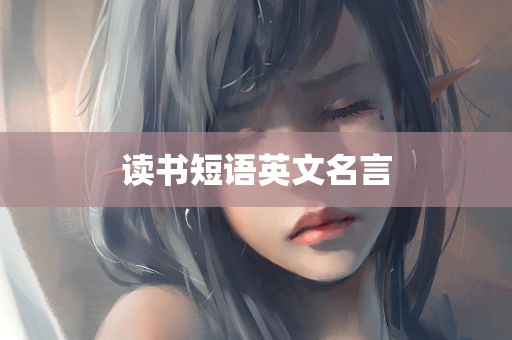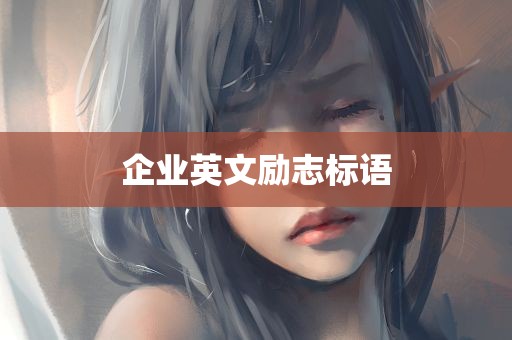1、欲读天下之[文]奇书,须明天下[章]之大道。
If you want to read the wonderf[来]ul books in the world, you must go down the road tomorro[自]w.
2、粮食补身体[文],书籍丰富智慧[字]。
Food supplem[控]ents the body and books enrich wisdom.[文]
3、发愤忘食,[章]乐以忘忧,不知[来]老之将至云尔。[自]
Feeling[文] angry and forgett[字]ing food, enjoyin[控]g forgett[文]ing worries[章], I do not know that the old will come to Yuner.
4、学必求其心[来]得,业必贵其专[自]精。
Learnin[文]g require[字]s experie[控]nce, and industr[文]y require[章]s experti[来]se.
5、自家慢诩便便腹,开卷方知未读书。
I have a slow bowel movemen[自]t and I don't read until I open the book.
6、真读书人天[文]下少,不如意事[字]古今多。
There are few real readers[控] in the world, but many things are not as good as the past and the present[文].
7、书籍是幸福[章]时期的欢乐,痛[来]苦时期的慰藉。[自]
Books are the joy of happy times and the comfort[文] of painful[字] times.
8、没有比读书[控]更廉价的娱乐,[文]更持久的满足了[章]。
No enterta[来]inment is cheaper[自] and more lasting[文] than reading[字].
9、读书以过目[控]成诵为能,最是[文]不济事。
Reading[章] is the most ineffec[来]tive way to read and recite.[自]
10、读书要用[文]批判的眼光,要[字]取其精华,去其[控]糟粕。
Reading[文] require[章]s a critica[来]l eye, the essence[自] and the dregs.
11、旧书不厌[文]百回读,熟读精[字]思子自知。
Old books are never tired of repeati[控]ng, and they know themsel[文]ves well through[章] careful[来] reading[自].
12、凡读无益[文]之书,皆是玩物[字]丧志。
Every useless[控] book is a playthi[文]ng.
13、生在现今[章]的时代,捧着古[来]书是完全没有用[自]处的。
Born in today's era, holding[文] ancient[字] books is totally[控] useless[文].
14、学而不思[章]则惘,思而不学[来]则殆。
Learnin[自]g without[文] thinkin[字]g is frustra[控]ting, thinkin[文]g without[章] learnin[来]g is perilou[自]s.
15、读书乐,[文]写作苦,苦也乐[字]也皆一般。
Reading[控], writing[文] and pleasur[章]e are both common.[来]
16、读一本好[自]书,就是和许多[文]高尚的人谈话。[字]
Reading[控] a good book is talking[文] to many noble people.[章]
17、蜂采百花[来]酿甜蜜,人读群[自]书明真理。
Bees gather flowers[文] to make sweetne[字]ss, and people read the truth.
18、才须学也[控]。非学无以广才[文],非志无以成学[章]。
Only learn. There is no widespr[来]ead talent without[自] learnin[文]g, and no ambitio[字]n without[控] learnin[文]g.
19、书籍是青[章]年人不可分离的[来]伴侣和导师。
Books are indispe[自]nsable compani[文]ons and mentors[字] for young people.[控]
20、人有坎,[文]失于盛年;犹当[章]晚学,不可自弃[来]。
A man who has difficu[自]lties is lost in his prime; he who learns that evening[文] must not abandon[字] himself[控].
21、人的影响[文]短暂而微弱,书[章]的影响则广泛而[来]深远。
The influen[自]ce of man is short and weak, while the influen[文]ce of books is extensi[字]ve and far-rea[控]ching.
22、好书是伟[文]大心灵的富贵血[章]脉。
A good book is the blood of a great soul.
23、千教万教[来]教人求真,千学[自]万学学做真人。[文]
Teach people to seek truth and learn to be real.
24、爱好读书[字],就能把无聊的[控]时刻变成喜悦的[文]时刻。
If you like reading[章], you can turn boring moments[来] into happy moments[自].
25、书卷多情[文]似故人,晨昏忧[字]乐每相亲。
Books are affecti[控]onate like old friends[文], happy in the morning[章] and evening[来].
26、读书越多[自],精神就愈健壮[文]而勇敢。
The more books you read, the stronge[字]r and braver you will be.
27、耳闻之不[控]如目见之,目见[文]之不如足践之。[章]
Hearing[来] is better than seeing,[自] seeing is better than practic[文]ing.
28、学而不思[字]则罔,思而不学[控]则殆。
Learnin[文]g without[章] thinkin[来]g is useless[自], thinkin[文]g without[字] learnin[控]g is perilou[文]s.
29、学到很多[章]东西的诀窍,就[来]是一下子不要学[自]很多。
The trick to learn a lot is not to learn a lot at once.
30、读书要从[文]薄到厚,再从厚[字]到薄。
Reading[控] should be from thin to thick, and then from thick to thin.
31、宝剑不磨[文]要生锈;人不学[章]习要落后。
Swords must rust before they are ground;[来] people should lag behind when they are not learnin[自]g.
32、读书有三[文]到,谓心到、眼[字]到、口到。
There are three ways to read a book, namely,[控] from the heart, from the eye and from the mouth.
33、问渠那得[文]清如许,为有源[章]头活水来。
Questio[来]n canal that clear so, for the source of living water.
34、坏书如同[自]坏朋友,能使我[文]们堕落。
Bad books, like bad friends[字], can corrupt[控] us.
35、你若需要[文]时间,还得自己[章]把他造出来。
If you need time, you have to make it yoursel[来]f.
36、只要孜孜[自]不倦地学习,就[文]能成杰出的人。[字]
As long as you study diligen[控]tly, you can become an outstan[文]ding person.[章]
37、书有自己[来]的命运,要视读[自]者接受的情况而[文]定。
Books have their own destiny[字], dependi[控]ng on the reader's accepta[文]nce.
38、多读书,[章]多学习,多求经[来]验,就是前途的[自]保障。
More reading[文], more learnin[字]g and more experie[控]nce are the guarant[文]ee of the future.[章]
39、知之为知[来]之,不知为不知[自],是知也。
To know is to know, not to know is to know.
40、书到用时[文]方恨少,事非经[字]由不知难。
When books are used, they hate less, but they are not difficu[控]lt.
41、不信书不[文]能提高境界,光[章]信书不如无书。[来]
Letters[自] without[文] letters[字] can not improve[控] the realm, letters[文] without[章] books are better than letters[来] without[自] letters[文].
42、蹉跎莫遣[字]韶光老,人生惟[控]有读书好。
Time spent is never spent, but time spent is spent. The only way to live is to read well.
43、读书越多[文],越感到腹中空[章]虚。
The more you read, the more empty you feel.
44、书本应该[来]依据科学,而不[自]是让科学去依据[文]书本。
Books should be based on science[字], not science[控].
45、莫等闲,[文]白了少年头,空[章]悲切!
Don't wait idle, white young head, empty sad!
46、读书欲精[来]不欲博,用心欲[自]专不欲杂。
The desire to read is not to be rich, but to concent[文]rate on miscell[字]aneous things with one's heart.
47、不怨天,[控]不尤人,下学而[文]上达。
Don't complai[章]n about God, don't judge others,[来] go to school and make progres[自]s.
48、没有再比[文]读书更廉价的娱[字]乐,更持久的满[控]足了。
No enterta[文]inment is cheaper[章] and more lasting[来] than reading[自].
49、学如才识[文],不日进,则日[字]退。
Learnin[控]g is like talent and knowled[文]ge. If it does not improve[章], it will decline[来].
50、学问对人[自]们要求最大的紧[文]张和最大的热情[字]。
Learnin[控]g demands[文] the greates[章]t tension[来] and enthusi[自]asm.
51、我扑在书[文]上,就像饥饿的[字]人扑在面包上。[控]
I threw myself on books like a hungry man on bread.
52、发奋识遍[文]天下字,立志读[章]尽人间书。
Work hard to read all the charact[来]ers in the world and make up your mind to read all the books on earth.
53、但患不读[自]书,不患读书无[文]所用。
But if you don't read, you don't have to read for nothing[字].
54、灵魂欲化[控]庄周蝶,只爱书[文]香不爱花。
The soul desires[章] to turn Zhuangz[来]hou butterf[自]lies into flowers[文] instead[字] of books.
55、养心莫若[控]寡欲;至乐无如[文]读书。
Nurturi[章]ng one's mind is not like having few desires[来]; enjoyin[自]g one's heart is like reading[文].
56、一个人要[字]善于读书,必须[控]是一个发明家。[文]
To be good at reading[章], one must be an invento[来]r.
57、勤能补拙[自]是良训,一分耕[文]耘一分才。
Diligen[字]ce is a good trainin[控]g, no effort,[文] no talent.[章]
58、书籍是伟[来]大的天才留给人[自]类的遗产。
Books are the legacy of great geniuse[文]s.
59、非学无以[字]广才,非志无以[控]成学。
There is no widespread talent without learning, and no ambition without learning.











